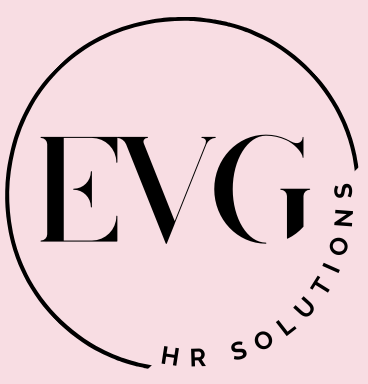Hiring is one of the most important decisions a business owner makes—especially when you’re running a small team. One great hire can elevate your business. But the wrong one? It can lead to wasted time, money, and morale.
That’s why knowing how to spot interview warning signs—subtle and not-so-subtle red flags—can save you from costly hiring mistakes.
Whether you’re hiring for a remote or in-person role, this post will walk you through the most common (and often overlooked) warning signs to watch out for during interviews, plus how to respond with confidence and care.
Why Interview Red Flags Matter (Especially for Small Teams)
When you’re a solopreneur or managing a lean team, every new hire has a significant impact. There’s no buffer for bad hires. One wrong fit can delay growth, disrupt workflows, or even damage client relationships.
According to the U.S. Department of Labor, the average cost of a bad hire is at least 30% of the employee’s first-year earnings. That’s tens of thousands of dollars—often more for small businesses where resources and team bandwidth are already stretched.
And let’s be honest—interviewing is a skill that many small business owners develop on the job. You may not be an HR pro (yet), but understanding how to assess candidate fit beyond resumes is essential.
That’s where interview warning signs come in. This post will discuss 7 interview red flags to observe.
1. Vague or Inconsistent Responses
When a candidate struggles to provide specific examples—or gives different answers to the same question in different ways—it’s a signal to dig deeper.
What to look for:
- Unclear timelines or details in past roles
- Shifting answers between the phone screen and the interview
- Avoiding questions about challenges or responsibilities
What to ask:
“Can you walk me through that experience again and clarify your role in the project?”
Tip: Look for consistency between their resume, LinkedIn profile, and answers.
2. Overly Negative Talk About Previous Employers
It’s okay for candidates to be honest about past challenges, but when the conversation turns bitter or overly negative, it can reflect poor emotional intelligence or unresolved conflict.
What to listen for:
- Blaming others for job losses or mistakes
- Using unprofessional language to describe past workplaces
- Avoiding responsibility in past conflicts
How to redirect:
“I understand that must’ve been frustrating. What did you learn from that experience?”
3. Lack of Curiosity About the Role or Company
Great candidates ask thoughtful questions. They’re interested in how they’ll contribute, not just what they’ll get.
Interview warning signs can include:
- No questions at the end of the interview
- Asking only about pay, perks, or time off
- Not knowing basic facts about your business
Remote interviews tend to magnify this, since candidates might feel less pressure to prep.
If someone isn’t curious, they might not be invested in the opportunity.
4. Poor Communication or Lack of Follow-Through
From scheduling to thank-you emails, how a candidate communicates can give you clues about how they’ll work.
Warning signs:
- Rescheduling repeatedly without clear explanation
- Late arrival to interviews (virtual or in-person)
- Radio silence after outreach or next steps
This doesn’t always mean someone’s a bad fit—but consistent communication issues could foreshadow how they’ll manage deadlines, clients, or team communication.
5. Vibes Don’t Match the Resume
Some candidates look amazing on paper but leave you confused or concerned after the interview.
This can include:
- Soft skills that don’t match the resume (e.g., “team player” who interrupts constantly)
- Confidence that feels like arrogance
- Claiming skills but unable to describe how they used them
Your gut counts. If you’re sensing a mismatch, trust yourself to pause and dig deeper.
6. Overly Rehearsed or Robotic Responses
You want prepared—not scripted. If every answer sounds like it came from a coaching manual or AI chatbot, it may signal a lack of authenticity.
Look out for:
- Cliché-heavy answers that don’t feel personal
- Evasive responses when asked for examples
- Repeating the job description instead of adding new insight
Remote Interview Tip: These signs can be harder to spot over video—look for tone and body language.
7. Avoidance of Cultural Fit Questions
Whether you ask about how they work on teams, handle feedback, or align with company values—resistance to these questions can be telling.
Red flags include:
- Changing the subject or giving vague answers
- Saying they “don’t really care” about team dynamics
- Lack of enthusiasm when discussing mission or vision
Especially for small teams, cultural alignment is a non-negotiable.
What To Do If You Spot Interview Warning Signs
Spotting a red flag doesn’t mean an automatic “no.” Sometimes it just means you need to:
- Ask follow-up questions
- Do reference checks
- Bring in a second interviewer for another perspective
- Review how clearly you communicated the role
When in doubt, slow the process down. It’s better to wait for the right fit than to rush a hire you’ll regret.
Interview Warning Signs Can Be Subtle—But Costly
Interviewing isn’t just about ticking boxes. It’s about protecting your business and creating a strong, aligned team.
Take notes. Pay attention to tone and consistency. And don’t ignore your instincts.
If you’re hiring remotely, consider adding a short skills test or async video screen to add another layer of clarity.
Conclusion
Red flags don’t always mean someone’s a bad person—they might just not be the right person for your business. The goal isn’t to disqualify—it’s to protect your team, your clients, and your peace of mind.
